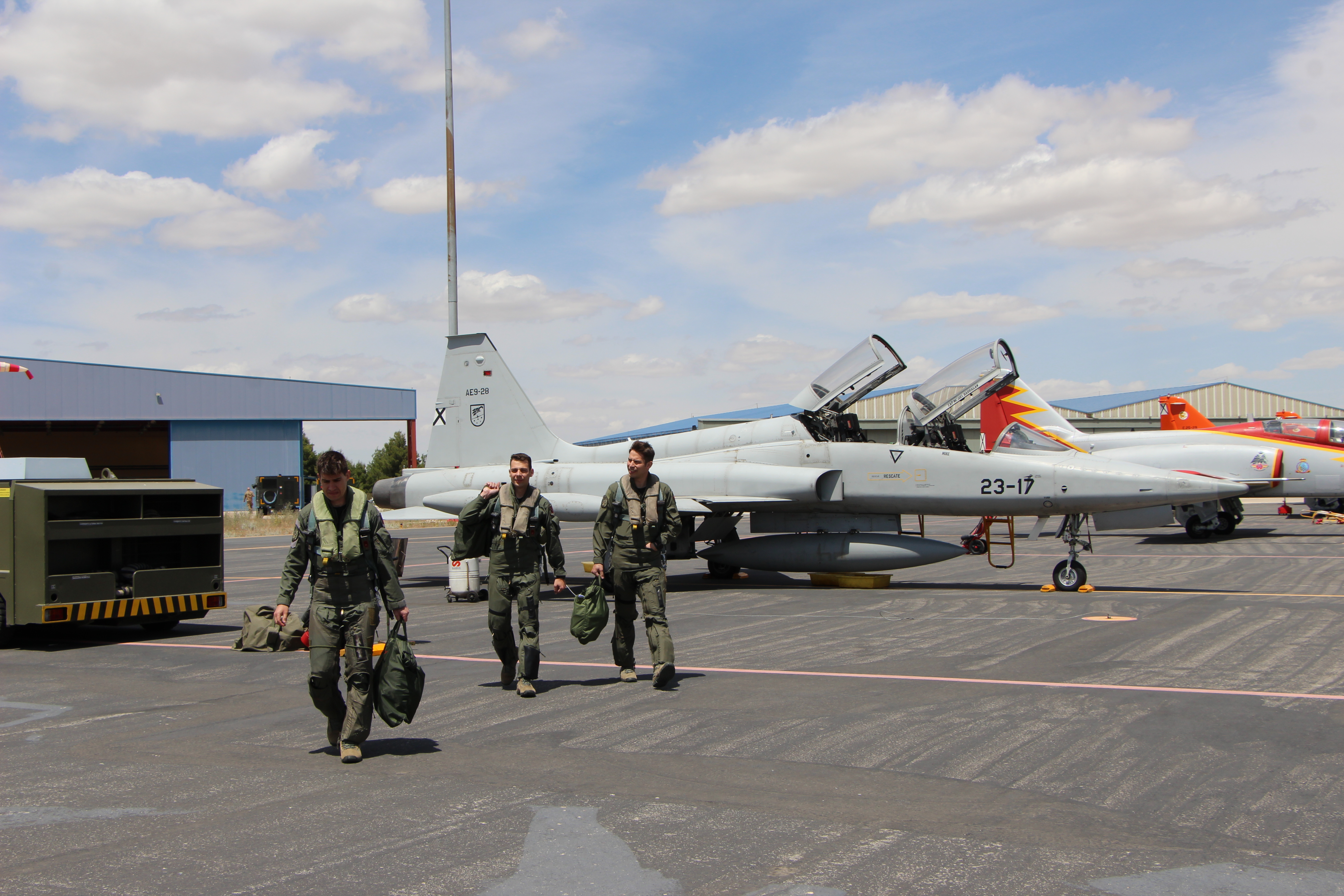During the cold war seven NATO nations shared the West German airspace in a defensive cold war posture, ready to take action at any time. They recognized the need for joint operations, the need to train together and the need to generate leaders for challenging multinational air defense and air strike missions.
With this aim in mind, in January 1978, the signatory nations Belgium, Canada, Germany, Netherlands, UK and the USA formed the AAFCE TLP at the German Air Force base of Fürstenfeldbruck. Early TLP courses took the form of a two week seminar where aircrew discussed and formulated NATO tactics, techniques and procedures.

In September 1979 TLP moved to Jever AB in Northern Germany where the course length was extended to four weeks in order to include a flying phase. TLP, part of the NATO organization took the task to train flight leads to be qualified to plan, brief and conduct multinational combat air patrol missions employing mixed force fighter formations and to lead multinational counter air operation strike packages. When TLP ceased the operation in Jever at the end of 1988, 71 flying courses had been completed and nearly 2000 NATO aircrew had graduated.
Since TLP staff had been selected from the most experienced and respected airborne leaders in their own air forces, by the end of the cold war, TLP had grown to be the European center of excellence in all matters related to coalition force air operations.Therefore it was unquestionable to the TLP nations that the Tactical Leadership Programme would play an important role after the cold war.
In March 1989 TLP moved to the Belgian Air Force Base at Florennes, where the staff, the task and the area of responsibility was expanded. Two branches were added and aside from flying courses, TLP started to instruct allied forces in academic courses and began writing NATO doctrine related to tactical air operations. Starting as a Central Region organization with the mission to defend the inner German border, TLP adapted new challenges, preparing the future tactical leaders to be ready for conflicts that could take place in any geographic location all around the globe.
The number of nations participating in TLP Flying and Academic courses and joining the program increased. Aside from the member nations, other countries, including some non-NATO allies, began regularly sending military specialists to TLP to be trained in all the skills related to tactical air operations. By 2012 more than 7000 aircrew have participated in TLP flying courses.
As the NATO focus has shifted away from a potential conflict in central Europe, TLP needed a training area that is representative of the theaters of potential future conflicts. With the dawn of the new century, TLP member nations then started investigating new and more favorable locations for TLP to cope with the challenge of growing air traffic congestion in Central Europe. The TLP choice was ALBACETE Air Base in South East Spain, blessed with some of Europe’s most favorable meteorological conditions and a large airspace structure. Equipped with modern infrastructure, including a purpose-built 500 bed accommodation lodge, full dining and recreation facilities, a modern aircraft repair hangar and logistic storage facilities
In the summer of 2009 a new Memorandum of Understanding (MOU) which positioned TLP outside of the NATO structure and was signed by the 10 participating nations (Belgium, Denmark, France, Germany, Greece, Italy, the Netherlands, Spain, United Kingdom and the United States of America).
During this time TLP moved into Spain’s sunny region of Castilla la Mancha to the regional capital of ALBACETE, a city of 175,000 inhabitants. TLP in Albacete has excellent growth potential and is prepared to host this European training center of excellence for decades to come.
Supported by the governments of Belgium, Denmark, France, Germany, Greece, Italy, the Netherlands, Spain, United Kingdom and the United States of America,
Tactical Leadership Programme (TLP) prepares NATO allied coalition forces for worldwide tactical air operations.
TLP is formed under a Memorandum of Understanding between these 10 NATO nations and, although not part of the NATO structure, it is linked to NATO via a Letter of Agreement.
With the mission of increasing the effectiveness of Allied Air Forces through development of leadership skills, mission planning, briefing, tactical air operations and debriefing skills and conceptual and doctrinal initiatives,
TLP is committed to the following tasks:
• Preparation of NATO and allied forces flight leaders to be Mission Commanders to lead coalition force air strike packages.
• Instruction of allied flying and non-flying personnel in all matters related to tactical composite air operations.
• Introduction of new NATO partners and allies to NATO tactical air operations.
• Provision of tactical air expertise to NATO agencies.
TLP commits to these tasks by training and instructing allied personnel in flying and academic courses and providing an international forum to discuss tactical issues.
The staff at TLP is proud of its reputation for not only providing excellent training, but also for fostering friendships and fostering an important spirit of cooperation between nations.
There is no doubt that a generation of airmen have greatly benefited from lessons learned as TLP participants.

